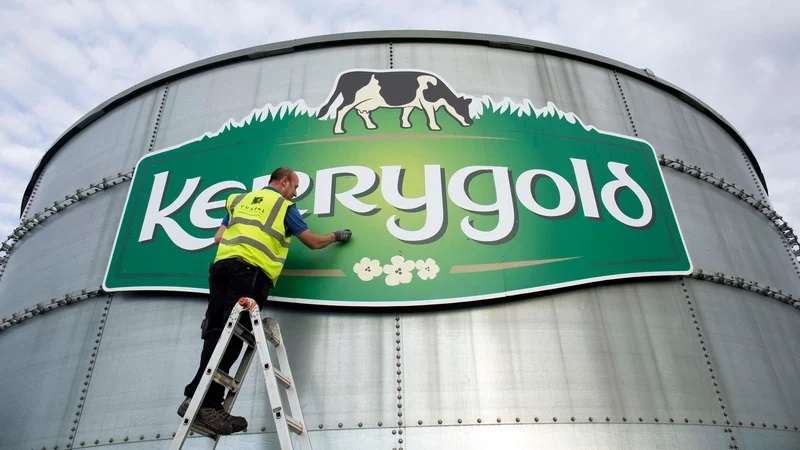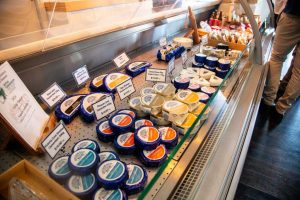
Ornua, the co-op that owns and operates the Kerrygold brand, said today that it “regrets” the US decision to impose additional tariffs on Kerrygold and remains hopeful that a negotiated solution can be reached between the US and the EU.
“Our products are subject to US import duties and additional tariffs will have a negative impact on our business, on our US consumers, and on the dairy farmers who supply Kerrygold,” it said.
“For over 30 years, US consumers have chosen Kerrygold because of its distinct Irish grassfed credentials. Kerrygold, made from quality assured Irish cream, is the second biggest butter brand in the US,” the company said.
“We will endeavour to ensure Kerrygold butter and cheese continues to offer US consumers a unique proposition,” it stated.

“The US will remain a very important market for Ornua, and we are committed to further investing in our businesses there, and meeting the needs of our wonderful US consumers who love Irish grassfed dairy,” it added.
The Irish Farmers’ Association has warned the difference between the 20% tariffs imposed on the EU and 10% tariffs on countries such as New Zealand and the UK will impact the competitiveness of Irish products on the US market, including Kerrygold butter.
The farming organisation said the US market makes up around 11% of total Irish food and drink exports.
Dairy at €830m and drinks – predominantly whiskey – at €900m account for 91% of Irish exports to the US, the body added.
The Irish Whiskey Association has said the effects of the US tariff announcement will be immediate on sales of Irish whiskey, as well as other Irish spirits and liqueurs in America.

In a statement, the association said: “Should an appropriate resolution not be found, this tariff may have a detrimental effect on the position of the category in the US market, undoing decades of success and growth.
“The US has been the engine of growth for Irish whiskey and spirits, and now represents 41% of Irish drinks exports every year,” the IWA said.
“The total value of the US market for the Irish drinks sector is €865 million per annum.”
Limerick-based whiskey producer Tony Foote, whose company produces the Foxes Bow brand and exports to the US – mainly Texas – says in many ways there is a bit of relief now that the US tariffs plan has been announced so that producers now understand the path forward.

Mr Foote, who has been exporting his relatively young brand of whiskey to the US since 2023, said the company took the decision to shift a large amount of product to the US in advance of the Trump inauguration, anticipating the President would impose tariffs.
The US is the company’s largest market.
“That buys us an additional six months – it kicks the challenges down the road in the short term so that we can continue to serve our customers without hitting the price of our product,” Mr Foote said.

“Hopefully it will not be the doomsday scenario that everyone anticipates, and we will be able to hold our price, which is still very competitive compared to some US bourbon brands. But we would certainly be looking at our margins to see can we save there without passing on price rises in six months time,” he said.
Despite the challenges that tariffs undoubtedly impose, Tony Foote does not anticipate exiting the US market. The company exports to Texas and has also entered Florida.
“I don’t think we’ll be exiting the US market. Irish whiskey generally has a great name in the US, with a huge following and I believe it can stay price elastic. I think we can sustain that trajectory,” he stated.
But he added that he believes the tariffs imposed by the US is a double edged sword and presents opportunities and forces business to look for and seek new markets.
“There is a lot of fear and fatigue out there from this whole tariffs talk. We just launched our product in Ontario in Canada where off-licence retailers had taken thousands of US bourbon products off the shelves, leaving a wide open space for us to go in there,” Mr Foote said.
“We got good traction by influencers and it was followed up on TV so yes while the focus is on the US there are a lot of opportunities out there created by this. We are a small brand and we can lean into those opportunities,” he added.
Meanwhile the Irish Exporters Association said “the introduction of 20% tariffs will bring a business-defining challenge for all exporters.
“Whilst we welcome that pharmaceuticals are for the moment not subject to this tariff, there are many Irish-owned and Irish-based exporting companies who are now faced with an unprecedented challenge.”































